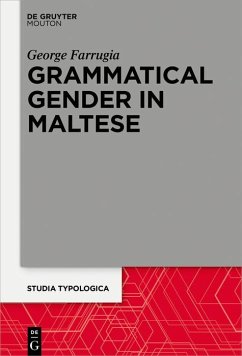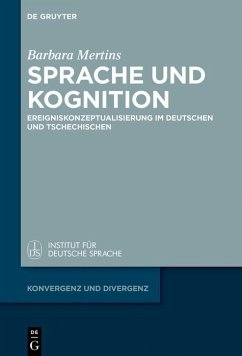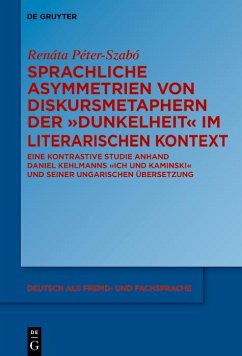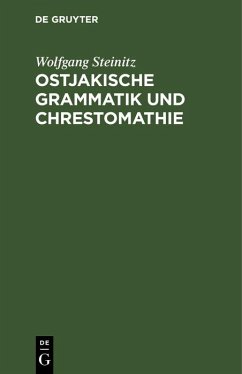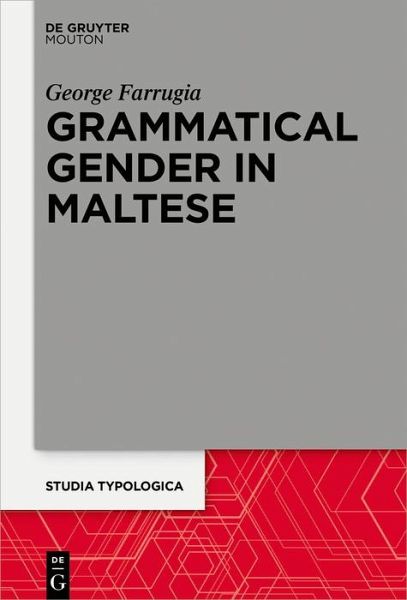
Grammatical Gender in Maltese (eBook, PDF)
Versandkostenfrei!
Sofort per Download lieferbar
97,95 €
inkl. MwSt.
Weitere Ausgaben:

PAYBACK Punkte
49 °P sammeln!
Is grammatical gender merely stored as a syntactic property of nouns, or is it computed according to a noun's semantic, morphological and phonological properties every time it is required?In many languages, gender appears to resist systematic treatment and can even cause problems for non-native learners. Native speakers of these languages appear to have no difficulty in assigning the correct grammatical gender to thousands of nouns in their language. Being an offshoot of Arabic, Maltese inherited a system comprising two gender categories, masculine and feminine. Numerous nouns were introduced ...
Is grammatical gender merely stored as a syntactic property of nouns, or is it computed according to a noun's semantic, morphological and phonological properties every time it is required?
In many languages, gender appears to resist systematic treatment and can even cause problems for non-native learners. Native speakers of these languages appear to have no difficulty in assigning the correct grammatical gender to thousands of nouns in their language. Being an offshoot of Arabic, Maltese inherited a system comprising two gender categories, masculine and feminine. Numerous nouns were introduced in Maltese through contact with Sicilian and subsequently with Italian, two languages that also have a masculine/feminine-based gender system. However, the more recent contact, with English, seems to have complicated matters.
This work investigates how grammatical gender functions in Maltese, how native speakers apply different criteria to classify nouns, and how this choice is reflected in syntactic agreement. It also takes into consideration the wider psycholinguistic context that influences the choice of category, and provides valuable data for theories that seek to explain the linguistic categorization of nouns in various languages.
In many languages, gender appears to resist systematic treatment and can even cause problems for non-native learners. Native speakers of these languages appear to have no difficulty in assigning the correct grammatical gender to thousands of nouns in their language. Being an offshoot of Arabic, Maltese inherited a system comprising two gender categories, masculine and feminine. Numerous nouns were introduced in Maltese through contact with Sicilian and subsequently with Italian, two languages that also have a masculine/feminine-based gender system. However, the more recent contact, with English, seems to have complicated matters.
This work investigates how grammatical gender functions in Maltese, how native speakers apply different criteria to classify nouns, and how this choice is reflected in syntactic agreement. It also takes into consideration the wider psycholinguistic context that influences the choice of category, and provides valuable data for theories that seek to explain the linguistic categorization of nouns in various languages.
Dieser Download kann aus rechtlichen Gründen nur mit Rechnungsadresse in A, B, BG, CY, CZ, D, DK, EW, E, FIN, F, GR, HR, H, IRL, I, LT, L, LR, M, NL, PL, P, R, S, SLO, SK ausgeliefert werden.




